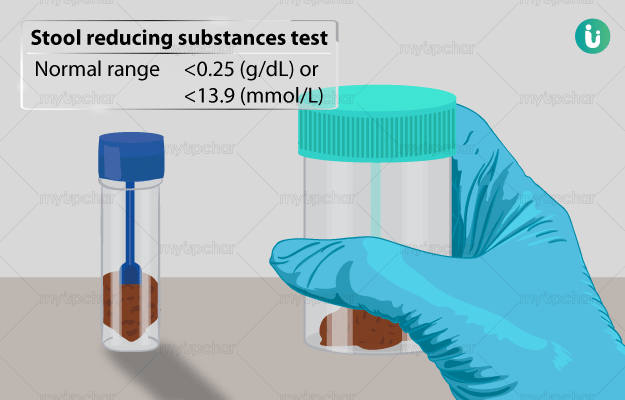What is Stool Reducing Substances test?
In a healthy person, the sugar from the food rapidly gets absorbed in the small intestine. However, in people with metabolic disorders like carbohydrate malabsorption, some sugars remain unabsorbed. This leads to the build-up of osmotic pressure and movement of fluids and electrolytes from blood into the intestines. Increase in fluids ultimately manifests as watery stools or diarrhoea. The unabsorbed sugars in the stool are called stool reducing substances.
The stool-reducing substances test is used to detect the presence of such unabsorbed sugar in your stools. Fructose, glucose, lactose, pentose and galactose are some reducing sugars that can be identified in a stool sample with this test.






























